HEALTH
Things You Should Be Doing After 5 P.M. If You’re Trying to Lose Weight, According to Dietitians
Published
2 weeks agoon
By
Verified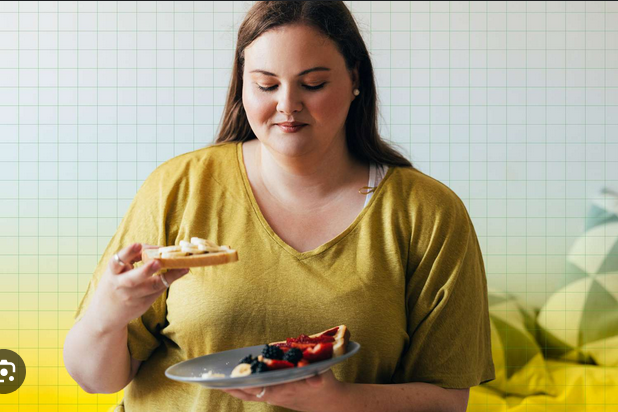
Finding ways to lose weight can be challenging enough. But when the clock strikes 5 p.m., healthy eating can feel even tougher. After a long day of work, errands or juggling life’s many responsibilities, it can be all too tempting to hit the couch with a bowl of ice cream and call it a day. The good news? Evenings don’t have to derail your goals. In fact, they can be one of the best times to set the stage for weight-loss success…….CONTINUE READING
Here’s how to make the most of them.
1. Eat Dinner Earlier
Eating late at night can have a surprising impact on weight loss. For instance, one study divided people into two groups based on whether they usually ate their meals earlier or later in the day. Researchers found that the late eaters tended to have higher BMIs, lower insulin sensitivity and higher triglycerides. Interestingly, the late eaters also lost weight more slowly and faced more weight-loss obstacles, like decreased motivation. While we’re not saying you need to sign up for the early bird special, this research suggests that the timing of meals may play an important role in managing weight and improving your overall health.
2. Have a Balanced Dinner
Of course, what you eat also matters. “A satisfying dinner will help manage cravings [and] snacking at night,” says Stefanie Wiener, M.S., RDN, CDN. “Eat a nourishing dinner balanced with high-fiber vegetables, whole grains, lean protein and healthy fats.” Fiber fills you up, so you’re less likely to go rummaging around for a bedtime snack. It’s so effective that one study found that people who followed a high-fiber meal plan, rich in fiber from fruits, vegetables, grains and beans, lost more weight than those who ate less of this satisfying nutrient.
3. Establish a No-Snacking Zone
“One of the best things people can do after 5 p.m. to support weight loss is avoid late-night snacking, especially high-calorie processed foods,” says Ana Reisdorf, M.S., RD. “Eating late, particularly high-carb or high-fat snacks, can disrupt your circadian rhythm, impair insulin sensitivity and lead to eating more calories than you need when your body is winding down.” Late-night eating is linked to increased body fat because it interferes with overnight fat burning and blood sugar regulation, she says.
If you tend to veer back into the kitchen for a late-night snack, it might be time to find a new routine. So, after dinner, wash the dishes, turn off the lights and head to a different part of the house until morning.
4. Take a Walk
Going for a walk can be one of the simplest yet most effective tools for weight loss. It’s free, doesn’t require a gym membership, and you can do it almost anywhere. “An evening walk helps burn calories, improves digestion after dinner and supports better blood sugar control,” says Juliana Crimi, RD, M.H.Sc. “Plus, light activity in the evening can reduce stress and help you sleep better, both of which are linked to healthier weight management.” A brisk 30-minute post-meal walk is a good goal. But if that sounds like a lot, start small, with a 10-minute stroll, and gradually increase your pace and duration.
5. Make Time to Unwind
“Plan for a wind-down routine in the evening that supports improved sleep quality and quantity,” says Taylor Lucas, RDN, LD. “Adequate sleep supports balanced hunger and reduces cravings resulting from low energy. This can look like reducing screen time, dimming the lights or journaling.”
One critical part of that routine: “Put down the phone at least one hour before bedtime,” says Mandy Enright, M.S., RDN, RYT. “The blue light from phones not only stimulates the brain, which makes it harder to fall asleep, [but also] think about the added stress we’re exposing ourselves to on the phone between emails, news and social media.” There’s another way your phone works against you. Its blue light also suppresses melatonin, a sleep-promoting hormone that may also play a role in body weight regulation.
6. Turn In Early
Research links disturbed sleeping patterns to greater energy intake and more snacking, especially on foods that are high in fat and carbohydrates. The link is so profound that one weight-loss trial of adults with obesity found that those who slept less than six hours a night or had poor-quality sleep were more likely to regain some of their lost weight compared to volunteers with more or better quality sleep. So, hit the hay a little early to get the seven to nine hours of shut-eye you need.
By making small, intentional changes to your post-5 p.m. routine, you can turn this often-overlooked time of day into an opportunity to support your weight-loss goals. Simple practices like preparing a healthy, balanced dinner, eating a little earlier, lacing up your shoes for a walk, exiting the kitchen after dinner, establishing a calming wind-down routine or getting some extra sleep can collectively make a big difference. The key is staying consistent and choosing strategies that fit with your lifestyle so they’re sustainable for the long term.
Also, remember that weight loss is not about perfection. It’s about progress. Give yourself grace and celebrate the small wins along the way. After all, these lifestyle changes are not just about shedding pounds. They’re also about creating healthier habits that will serve your overall health in the years to come. With a little planning, you can transform your evenings into a time to recharge, refocus and support weight loss at the same time. You’ve got this!
You may like
HEALTH
Why You Should Avoid Bread and Tea If You Have These Medical Conditions
Published
1 hour agoon
June 6, 2025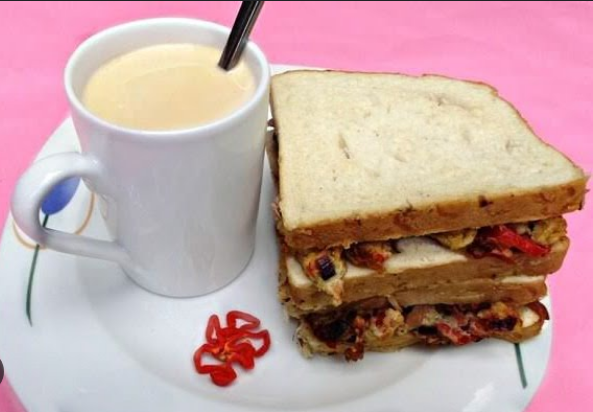
Why You Should Avoid Bread and Tea If You Have These Medical Conditions
Bread and tea are common dietary staples worldwide, but for some individuals, these foods can trigger or worsen health problems. If you have any of the following medical conditions, it’s important to limit or avoid bread and tea to protect your health:
Celiac Disease or Gluten Sensitivity
Bread contains gluten, which can cause severe digestive issues and inflammation in people with celiac disease or gluten intolerance.Irritable Bowel Syndrome (IBS)
Certain breads contain high FODMAP ingredients that can worsen IBS symptoms like bloating and cramps.Acid Reflux (GERD)
Tea, especially caffeinated varieties, can relax the lower esophageal sphincter and increase acid reflux symptoms.Anemia
Tea contains tannins that inhibit iron absorption, worsening anemia.Diabetes
Some breads, particularly white bread, cause rapid blood sugar spikes, complicating blood sugar management.
If you have these conditions, consult a healthcare professional for personalized dietary advice. Choosing gluten-free breads, herbal teas, or limiting intake can help manage symptoms and improve overall wellbeing……….CONTINUE READING
HEALTH
20 Powerful Health Benefits of Oha Leaves You Should Know
Published
2 hours agoon
June 6, 2025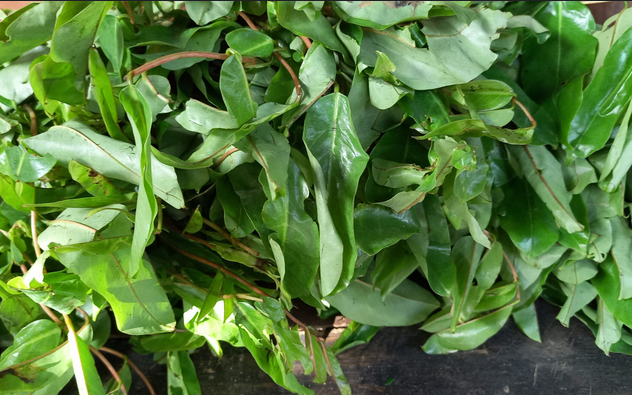
20 Powerful Health Benefits of Oha Leaves You Should Know
Oha leaves, also known as Ora leaves, are native to Nigeria and widely used in traditional soups like Oha soup. Beyond their rich flavor, these leaves offer numerous health benefits backed by natural compounds and essential nutrients.
Here are 20 remarkable benefits of Oha leaves:…….CONTINUE READING
Boosts immunity – Contains antioxidants and vitamin C.
Supports digestion – High in dietary fiber.
Improves blood circulation – Rich in iron.
Lowers blood sugar – Good for diabetic-friendly diets.
Supports bone health – Contains calcium and magnesium.
Anti-inflammatory – Helps reduce internal inflammation.
Aids weight loss – Low in calories, high in fiber.
Detoxifies the body – Natural cleansing effect.
Promotes heart health – Helps regulate blood pressure.
Improves vision – Contains vitamin A.
Boosts fertility – Traditionally used in fertility-enhancing recipes.
Prevents constipation – A natural remedy for bowel movement.
Supports brain health – Contains vital B-vitamins.
Fights anemia – Iron content improves red blood cell production.
Reduces stress – Contains calming phytonutrients.
Enhances skin health – Antioxidants improve skin tone.
Combats infections – Natural antimicrobial properties.
Strengthens muscles – Rich in essential amino acids.
Balances hormones – Especially beneficial for women.
Improves sleep quality – Mild sedative effect.
HEALTH
What Happens When You Soak Onions in Water Overnight and Drink It on an Empty Stomach
Published
2 days agoon
June 4, 2025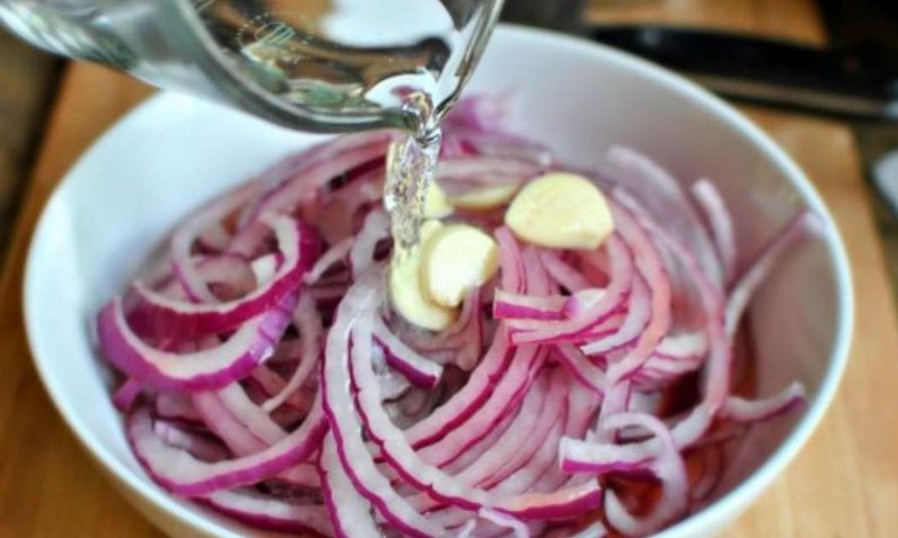
Onions are more than just a kitchen ingredient. They are packed with antioxidants, sulfur compounds, vitamins, and minerals. Soaking sliced onions in water overnight and drinking it on an empty stomach the next morning is an old natural remedy many people swear by. Here are the surprising benefits of this practice:
Boosts Digestion
Onion water contains prebiotics that feed the good bacteria in your gut, helping improve digestion and reduce bloating or constipation.Flushes Out Toxins
Thanks to its sulfur content, onion water acts as a natural detoxifier. It helps the liver work more efficiently and flush out toxins from the body.Improves Heart Health
Onion water may help reduce blood pressure, improve circulation, and lower bad cholesterol due to its natural antioxidant and anti-inflammatory properties.Strengthens Immunity
The vitamin C and antibacterial properties in onions help boost your immune system and keep infections away.Regulates Blood Sugar
Some studies suggest that onions can help regulate blood sugar levels, making this remedy especially helpful for people managing diabetes.Improves Skin and Hair
Onion water supports collagen production for healthy skin and contains nutrients like sulfur that may reduce hair fall and promote hair growth.Enhances Male and Female Fertility
In traditional medicine, onion water is believed to support reproductive health by increasing libido and balancing hormones.
How to Prepare It:
Slice one medium-sized onion.
Place the slices in a cup or jar of clean water.
Cover and leave it overnight.
In the morning, strain and drink it on an empty stomach.
This remedy is natural and generally safe but may not suit everyone, especially those with onion allergies or gastrointestinal sensitivity. Always consult a doctor if you have underlying health conditions……..CONTINUE READING
Trending
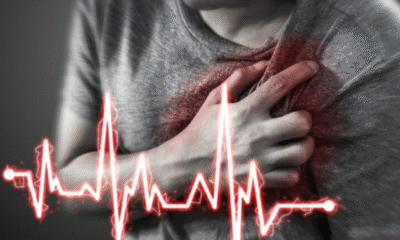
 Uncategorized2 weeks ago
Uncategorized2 weeks agoSilent Killer Diseases Every Woman Should Be Aware Of

 Uncategorized2 weeks ago
Uncategorized2 weeks agoEveryday Habits That Are Silently Destroying Your Health and Happiness

 EDUCATION1 week ago
EDUCATION1 week agoYou Can’t Have Two JAMB Results — The Old One Has Been Withdrawn

 Uncategorized2 weeks ago
Uncategorized2 weeks agoSurprising Diseases Linked to Skipping Your Night Shower
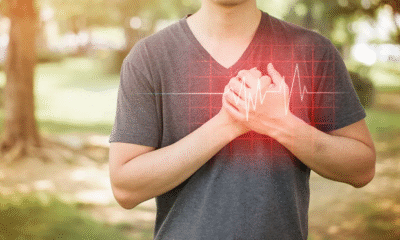
 Uncategorized2 weeks ago
Uncategorized2 weeks agoSigns That Indicate Your Heart Is Not Working Properly
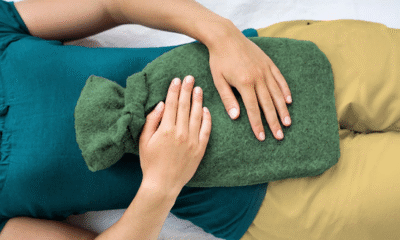
 Uncategorized1 week ago
Uncategorized1 week agoWhat Causes Painful Periods and How You Can Get Relief

 Uncategorized2 weeks ago
Uncategorized2 weeks agoCommon Reasons People Die In Their Sleep

 ENTERTAINMENT2 weeks ago
ENTERTAINMENT2 weeks agoNollywood actress, Tolani Akintunde dies of heart attack in the UK

